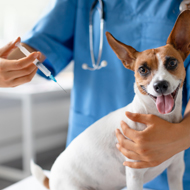Over 450 animals rescued in major operation
Twenty-nine donkeys were seized from the premises.
A major operation has seen the rescue of over 450 animals of 19 different species, which were found to be living in ‘appalling’ conditions.
The animals, found on a premises in Nottinghamshire, were saved as part of a collaborative effort from Nottinghamshire Police and eight animal welfare charities.
One of these charities was The Donkey Sanctuary, which worked alongside other equine charities in the seizure of approximately 41 horses and 29 donkeys. Some of the equines found had to be euthanised due to their suffering, leaving one donkey foal orphaned.
Many of the donkeys and horses were found to have severely overgrown and painful hooves. Some of them were underweight, while others had not received dental care and treatment for lice or thrush infections.
Twelve of the donkeys had such chronic hoof and health issues that they are expected to spend the rest of their lives at The Donkey Sanctuary, where they will receive specialist care.
Meanwhile the orphaned foal has already begun to form strong bonds with the other young donkeys at the sanctuary. The Donkey Sanctuary is working with the RSPCA to provide these donkeys with the veterinary support they need and, ultimately, find them new homes.
Hannah Bryer, head of welfare at The Donkey Sanctuary, said: “We have been working closely with the RSPCA to secure the best possible outcome for the donkeys involved.
“This means offering sanctuary to those donkeys who are unable to be rehomed in the community, while helping the others to find loving and long-term homes where they can be assured of a much brighter future.”
The large-scale rescue also over 50 dogs and over 170 guinea pigs, as well as cats, poultry, exotics and a llama.
RSPCA Inspector Laura Baker said: “Over two days we split up into teams to deal with different species and all the animals were systematically health checked and then taken to safe accommodation, where many were treated for their ailments and have since made a good recovery.
“Many of these animals have already been rehomed to enjoy better lives, both by the RSPCA and with the help of our charity partners.”
Image © The Donkey Sanctuary



 RUMA CA&E has extended the deadline for its online survey into vaccine availability.
RUMA CA&E has extended the deadline for its online survey into vaccine availability.